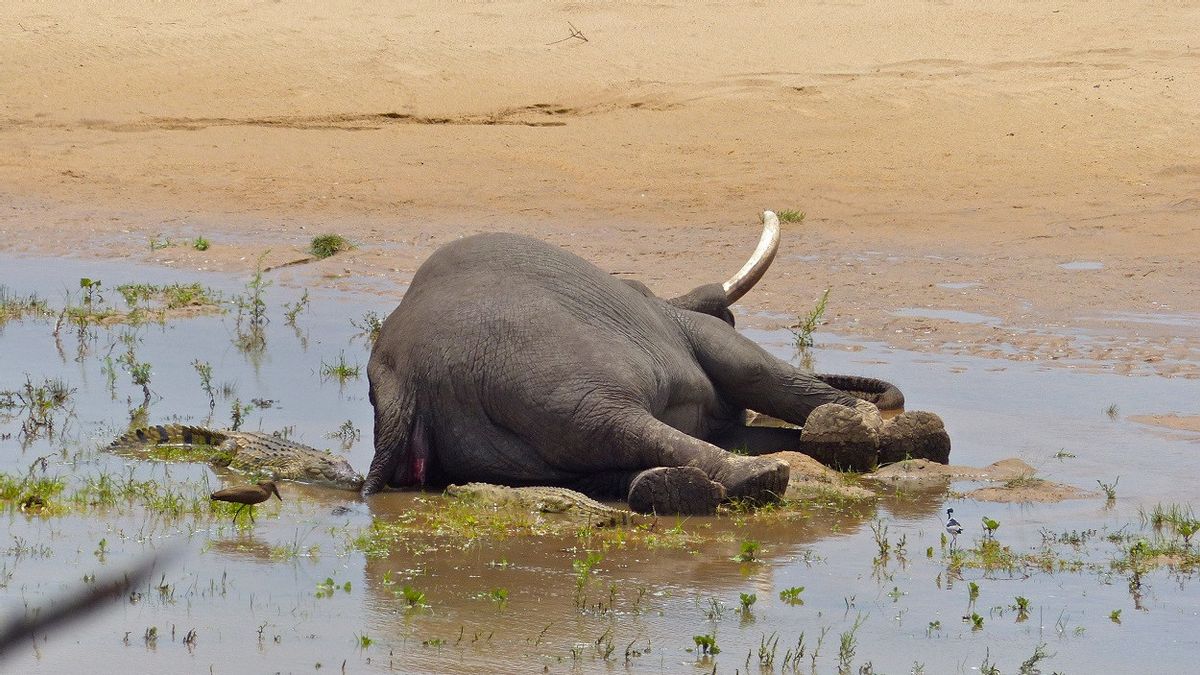JAKARTA - Countries in southern Africa, which is home to the world's largest elephant population, are concerned about the increase in animal deaths in the coming months, as food and water sources shrink after a severe drought.
The region experienced a long summer and dry season during the 2023-2024 rainy season caused by El Nino, a weather phenomenon marked by warming water in the eastern Pacific, causing hotter weather around the world.
El Nino has exacerbated the impact of climate change, scientists said.
Drought has affected the supply of water and food for humans, livestock and wildlife.
Zimbabwe lost 160 elephants in Hwange National Park which became the center of attention last year to January 2024, according to the country's wildlife authorities.
Meanwhile, Botswana lost 300 elephants due to drought last year, according to its environmental ministry.
Other countries such as Zambia have also confirmed the death of elephants in their national parks, with Environment Ministerung Sikumba describing the drought as "destroying".
Five countries that are members of the Kavango-Zambezi (KAZA) conservation area, Zimbabwe, Zambia, Botswana, Angola and Namibia, which are home to 227,000 elephants, meet in Livingstone, Zambia, to discuss sustainable wildlife management.
"Drought has had a bad impact and you will see that most of the drinking places in the parks around KAZA are drying up," Sikumba told Reuters on the sidelines of the conference.
"If there is no water and food, you will see carcasses scattered around the park," he continued.
Meanwhile, the Zimbabwe Parks and Wildlife Authority (Zimparks) said it had received $3 million from the country's disaster fund to increase water supplies in national parks. However, its director general Fulton Mangwa said the amount was not enough to save wildlife.
"We have more than 150 solar-powered drill wells. However, it will not stop elephants from dying as drought strikes. We are ready to face drought, but some situations are inevitable," he explained.
SEE ALSO:
The delegates said climate change had exacerbated the wildlife-satwa conflict because elephants were disturbing human habitat to find food and water. Last year, 50 people died in Zimbabwe as a result of elephant attacks.
Director of International Fund Landscape Conservation for Animal Welfare (IFAW) Philip Kuvawoga said wildlife faces a greater risk of food shortages due to drought and increased fire risk.
"Fire management is important so that we can maintain and maintain the availability of food for wildlife," he said.
The English, Chinese, Japanese, Arabic, and French versions are automatically generated by the AI. So there may still be inaccuracies in translating, please always see Indonesian as our main language. (system supported by DigitalSiber.id)


















